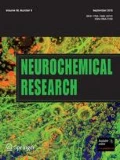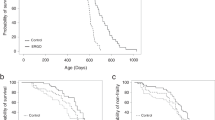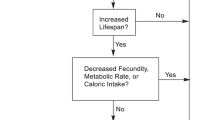Abstract
In the present study, we investigated the concentration-dependent effect of zinc (Zn) supplementation on the adult hippocampus in a high-fat diet (HFD)-fed obese mouse model. Four-weeks after HFD- and control diet (CD)-feeding, mice were provided with low (15 ppm) or high (60 ppm) doses of Zn in their drinking water for additional 4 more weeks along with their respective diets. Compared to the CD-fed mice, HFD-feeding elicited the reduction of neurogenic markers such as nestin, Ki67, doublecortin (DCX), and 5-bromo-2′-deoxyuridine (BrdU) in the dentate gyrus. Additionally, HFD-feeding reduced the levels of synaptic markers (synaptophysin and N-methyl-d-aspartate receptor) and brain-derived neurotrophic factor (BDNF), while lipid peroxidation was significantly increased in the hippocampus of HFD-fed mice. Against detrimental effects of high-dose Zn, low-dose Zn supplementation in CD-fed mice did not yield any remarkable changes in these parameters. Interestingly, administration of low doses of Zn to HFD-induced obese mice prominently ameliorated HFD-induced changes in neurogenic, synaptic plasticity markers and BDNF levels as well as lipid peroxidation in the hippocampus. In contrast, high-dose Zn supplementation in HFD-fed mice exacerbated the reduction of markers for neurogenesis and synaptic plasticity as well as BDNF levels, but not 4-HNE levels, in the hippocampus. These results suggest that low-dose Zn supplementation in obese mice could reverse the HFD-induced reduction in neurogenic and synaptic marker proteins in the hippocampus by reducing lipid peroxidation and improving BDNF expression, while high-dose Zn supplementation exacerbates the reduction of neurogenesis by affecting synaptic markers and BDNF levels in the hippocampus.





Similar content being viewed by others
References
McCord MC, Aizenman E (2014) The role of intracellular zinc release in aging, oxidative stress, and Alzheimer’s disease. Front Aging Neurosci 6:77
Frederickson CJ (1989) Neurobiology of zinc and zinc-containing neurons. Int Rev Neurobiol 31:145–238
Ruiz A, Walker MC, Fabian-Fine R, Kullmann DM (2004) Endogenous zinc inhibits GABAA receptors in a hippocampal pathway. J Neurophysiol 91:1091–1096
Sindreu C, Storm DR (2011) Modulation of neuronal signal transduction and memory formation by synaptic zinc. Front Behav Neurosci 5:68
Beyersmann D, Haase H (2001) Functions of zinc in signaling, proliferation and differentiation of mammalian cells. Biometals 14:331–341
Suh SW, Won SJ, Hamby AH, Yoo BH, Fan Y, Sheline CT, Tamano H, Takeda A, Liu J (2009) Decreased brain zinc availability reduces hippocampal neurogenesis in mice and rats. J Cereb Blood Flow Metab 29:1579–1588
Gower-Winter SD, Corniola RS, Morgan TJ Jr, Levenson CW (2013) Zinc deficiency regulates hippocampal gene expression and impairs neuronal differentiation. Nutr Neurosci 16:174–182
Li SG, Fu K, Kong QH, Wu XG (2011) The blood lead level and fresh blood quick native immune reaction. Appl Mech Mater 140:235–237
Tassabehji NM, Corniola RS, Alshingiti A, Levenson CW (2008) Zinc deficiency induces depression-like symptoms in adult rats. Physiol Behav 95:365–369
Kubera M, Obuchowicz E, Goehler L, Brzeszcz J, Maes M (2011) In animal models, psychosocial stress-induced (neuro)inflammation, apoptosis and reduced neurogenesis are associated to the onset of depression. Prog Neuropsychopharmacol Biol Psychiatry 35:744–759
de Moura JE, de Moura EN, Alves CX, Vale SH, Dantas MM, Silva Ade A, Almeida Md, Leite LD, Brandão-Neto J (2013) Oral zinc supplementation may improve cognitive function in schoolchildren. Biol Trace Elem Res 155:23–28
Solati Z, Jazayeri S, Tehrani-Doost M, Mahmoodianfard S, Gohari MR (2015) Zinc monotherapy increases serum brain-derived neurotrophic factor (BDNF) levels and decreases depressive symptoms in overweight or obese subjects: a double-blind, randomized, placebo-controlled trial. Nutr Neurosci 18:162–168
Szewczyk B, Poleszak E, Sowa-Kućma M, Wróbel A, Słotwiński S, Listos J, Wlaź P, Cichy A, Siwek A, Dybała M, Gołembiowska K, Pilc A, Nowak G (2010) The involvement of NMDA and AMPA receptors in the mechanism of antidepressant-like action of zinc in the forced swim test. Amino Acids 39:205–217
Jansen J, Karges W, Rink L (2009) Zinc and diabetes—clinical links and molecular mechanisms. J Nutr Biochem 20:399–417
Jansen J, Rosenkranz E, Overbeck S, Warmuth S, Mocchegiani E, Giacconi R, Weiskirchen R, Karges W, Rink L (2012) Disturbed zinc homeostasis in diabetic patients by in vitro and in vivo analysis of insulinomimetic activity of zinc. J Nutr Biochem 23:1458–1466
Mishima T, Kuroki T, Tajima Y, Adachi T, Hirabaru M, Tanaka T, Kitasato A, Takatsuki M, Eguchi S (2014) Dietary zinc supplementation to the donor improves insulin secretion after islet transplantation in chemically induced diabetic rats. Pancreas 43:236–239
Kaneto H, Katakami N, Matsuhisa M, Matsuoka TA (2010) Role of reactive oxygen species in the progression of type 2 diabetes and atherosclerosis. Mediators Inflamm 2010:453892
Powell SR (2000) The antioxidant properties of zinc. J Nutr 130:1447S–1454S
Noseworthy MD, Bray TM (2000) Zinc deficiency exacerbates loss in blood-brain barrier integrity induced by hyperoxia measured by dynamic MRI. Proc Soc Exp Biol Med 223:175–182
Oteiza PI, Clegg MS, Zago MP, Keen CL (2000) Zinc deficiency induces oxidative stress and AP-1 activation in 3T3 cells. Free Radic Biol Med 28:1091–1099
Song Y, Elias V, Loban A, Scrimgeour AG, Ho E (2010) Marginal zinc deficiency increases oxidative DNA damage in the prostate after chronic exercise. Free Radic Biol Med 48:82–88
Yang Y, Jing XP, Zhang SP, Gu RX, Tang FX, Wang XL, Xiong Y, Qiu M, Sun XY, Ke D, Wang JZ, Liu R (2013) High dose zinc supplementation induces hippocampal zinc deficiency and memory impairment with inhibition of BDNF signaling. PloS one 8:e55384
Franklin KBJ, Paxinos G (1997) The mouse brain in stereotaxic coordinates. Academic Press, San Diego
Wang FD, Bian W, Kong LW, Zhao FJ, Guo JS, Jing NH (2001) Maternal zinc deficiency impairs brain nestin expression in prenatal and postnatal mice. Cell Res 11:135–141
Corniola RS, Tassabehji NM, Hare J, Sharma G, Levenson CW (2008) Zinc deficiency impairs neuronal precursor cell proliferation and induces apoptosis via p53-mediated mechanisms. Brain Res 1237:52–61
Wong CP, Magnusson KR, Ho E (2013) Increased inflammatory response in aged mice is associated with age-related zinc deficiency and zinc transporter dysregulation. J Nutr Biochem 24:353–359
Yu X, Ren T, Yu X (2013) Disruption of calmodulin-dependent protein kinase II α/brain-derived neurotrophic factor (α-CaMKII/BDNF) signalling is associated with zinc deficiency-induced impairments in cognitive and synaptic plasticity. Br J Nutr 110:2194–2200
Simon SF, Taylor CG (2001) Dietary zinc supplementation attenuates hyperglycemia in db/db mice. Exp Biol Med (Maywood) 226:43–51
Chen MD, Liou SJ, Lin PY, Yang VC, Alexander PS, Lin WH (1998) Effects of zinc supplementation on the plasma glucose level and insulin activity in genetically obese (ob/ob) mice. Biol Trace Elem Res 61:303–311
Jenner A, Ren M, Rajendran R, Ning P, Tan Kwong Huat B, Watt F, Halliwell B (2007) Zinc supplementation inhibits lipid peroxidation and the development of atherosclerosis in rabbits fed a high cholesterol diet. Free Radic Biol Med 42:559–566
Suzuki M, Fujise Y, Tsuchiya Y, Tamano H, Takeda A (2015) Excess influx of Zn2+ into dentate granule cells affects object recognition memory via attenuated LTP. Neurochem Int 87:60–65
Nowak G, Schlegel-Zawadzka M (1999) Alterations in serum and brain trace element levels after antidepressant treatment. Part I Zinc. Biol Trace Elem Res 67:85–92
Malberg JE, Eisch AJ, Nestler EJ, Duman RS (2000) Chronic antidepressant treatment increases neurogenesis in adult rat hippocampus. J Neurosci 20:9104–9110
Page KC, Jones EK, Anday EK (2014) Maternal and postweaning high-fat diets disturb hippocampal gene expression, learning, and memory function. Am J Physiol Regul Integr Comp Physiol 306:R527–R537
Valladolid-Acebes I, Merino B, Principato A, Fole A, Barbas C, Lorenzo MP, García A, Del Olmo N, Ruiz-Gayo M, Cano V (2012) High-fat diets induce changes in hippocampal glutamate metabolism and neurotransmission. Am J Physiol Endocrinol Metab 302:E396–E402
Pereno GL, Beltramino CA (2010) Timed changes of synaptic zinc, synaptophysin and MAP2 in medial extended amygdala of epileptic animals are suggestive of reactive neuroplasticity. Brain Res 1328:130–138
Caglar OM, Bilgihan A, Turkcu UO, Biberoglu G, Take G (2012) The effect of zinc on ethanol-induced oxidative stress in rat liver. Turk J Biochem 37:437–444
Liang T, Zhang Q, Sun W, Xin Y, Zhang Z, Tan Y, Zhou S, Zhang C, Cai L, Lu X, Cheng M (2015) Zinc treatment prevents type 1 diabetes-induced hepatic oxidative damage, endoplasmic reticulum stress, and cell death, and even prevents possible steatohepatitis in the OVE26 mouse model: important role of metallothionein. Toxicol Lett 233:114–124
Tainer JA, Getzoff ED, Richardson JS, Richardson DC (1983) Structure and mechanism of copper, zinc superoxide dismutase. Nature 306:284–287
Corona C, Masciopinto F, Silvestri E, Viscovo AD, Lattanzio R, Sorda RL, Ciavardelli D, Goglia F, Piantelli M, Canzoniero LM, Sensi SL (2010) Dietary zinc supplementation of 3xTg-AD mice increases BDNF levels and prevents cognitive deficits as well as mitochondrial dysfunction. Cell Death Dis 1:e91
Cieślik K, Sowa-Kućma M, Ossowska G, Legutko B, Wolak M, Opoka W, Nowak G (2011) Chronic unpredictable stress-induced reduction in the hippocampal brain-derived neurotrophic factor (BDNF) gene expression is antagonized by zinc treatment. Pharmacol Rep 63:537–543
Nowak G, Legutko B, Szewczyk B, Papp M, Sanak M, Pilc A (2004) Zinc treatment induces cortical brain-derived neurotrophic factor gene expression. Eur J Pharmacol 492:57–59
Elsas SM, Hazany S, Gregory WL, Mody I (2009) Hippocampal zinc infusion delays the development of afterdischarges and seizures in a kindling model of epilepsy. Epilepsia 50:870–879
Takeda A, Tamano H (2014) Cognitive decline due to excess synaptic Zn2+ signaling in the hippocampus. Front Aging Neurosci 6:26
Bishop GM, Dringen R, Robinson SR (2007) Zinc stimulates the production of toxic reactive oxygen species (ROS) and inhibits glutathione reductase in astrocytes. Free Radic Biol Med 42:1222–1230
Li YV (2012) Zinc overload in stroke. In: Li YV, Zhang JH (eds) In metal ion in stroke. Springer, New York, pp 167–189
Acknowledgements
This work was supported by Basic Science Research Program through the National Research Foundation of Korea (NRF) funded by the Ministry of Education (NRF-2015R1D1A1A01059314) and was supported by Korea Mouse Phenotyping Project (NRF-2015M3A9D5A01076747) of the Ministry of Science, ICT and Future Planning through the National Research Foundation (NRF), Korea. This study was partially supported by the Research Institute for Veterinary Science, Seoul National University.
Author information
Authors and Affiliations
Corresponding author
Rights and permissions
About this article
Cite this article
Nam, S.M., Kim, J.W., Kwon, H.J. et al. Differential Effects of Low- and High-dose Zinc Supplementation on Synaptic Plasticity and Neurogenesis in the Hippocampus of Control and High-fat Diet-fed Mice. Neurochem Res 42, 3149–3159 (2017). https://doi.org/10.1007/s11064-017-2353-2
Received:
Revised:
Accepted:
Published:
Issue Date:
DOI: https://doi.org/10.1007/s11064-017-2353-2




